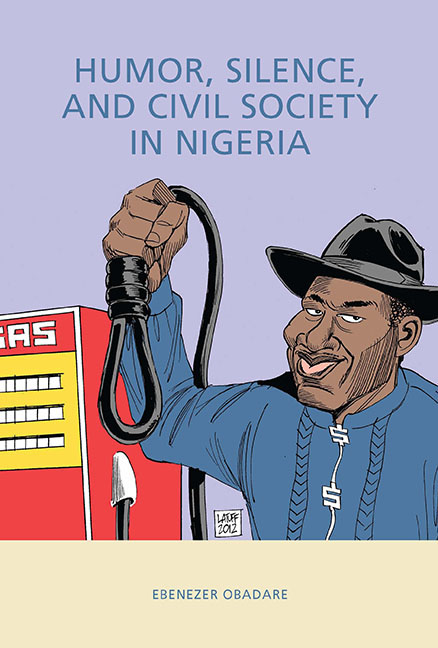2 - An African Discourse
Published online by Cambridge University Press: 15 February 2018
Summary
The Context
It is perhaps appropriate that civil society discourse in Nigeria was forged in the depths of the struggle against what Andrew Apter, straining to capture the smoke-and-mirrors quality of life in the Ibrahim Babangida era (1985–93), calls “the politics of illusion” (1999, 267). Taking guidance from Apter, this chapter traces the provenance of civil society discourse in Nigeria to the complex dynamics of mass mobilization against military rule, particularly the military regime of General Babangida, and the struggle to institutionalize a democratic ethos in the country.
I seek to accomplish two related aims. One is to describe how the language of civil society emerged and became part of the vocabulary of antistate forces. This involves an explanation of the appeal that the idea possessed. A second aim is to demonstrate that, partly because of the sociopolitical circumstances surrounding the idea's emergence, an associational understanding of civil society has been the norm in Nigeria. The almost exclusive focus on associations, I will argue, has led to a neglect of the historically robust social life outside associations. The discourse of civil society was forged in, and is intimately entangled with, the process of the country's recent struggle for political liberalization. The discussion in this chapter is embedded within this historical frame, although, as necessary, I link the events under review to developments in other parts of Africa.
Structural Adjustment, Popular Resistance, and the Birth of an Idea
The language of civil society was born in Africa during the late 1980s and early 1990s amid the showdown between popular democratic forces and authoritarian regimes (Falola and Heaton 2008; Diouf 1998; Oyediran and Agbaje 1999; Ihonvbere 1997, 1996; Olowu, Williams, and Soremekun 1995). Notably, this showdown took place in the shadow of a deepening economic crisis.
In Nigeria, the economy had tracked a downward spiral at the start of the 1980s. The dip in economic performance was indexed by a decline in export revenue, falling industrial production, and the contraction of the manufacturing sector. At the same time, reliance on oil as the main foreign exchange earner appears to have made matters worse, a situation not helped by the instability in the global oil market.
- Type
- Chapter
- Information
- Humor, Silence, and Civil Society in Nigeria , pp. 49 - 58Publisher: Boydell & BrewerPrint publication year: 2016

